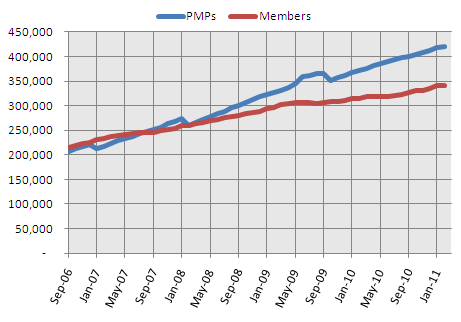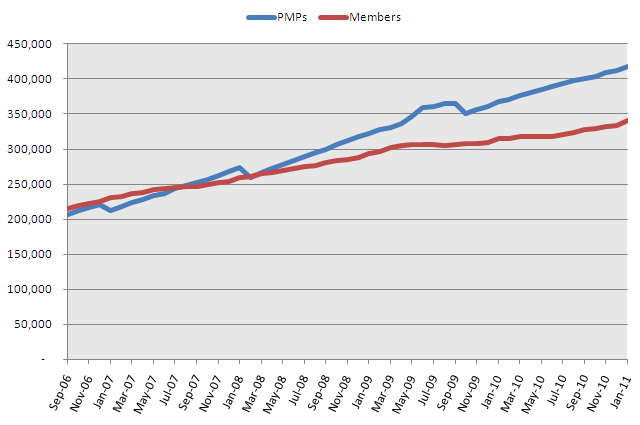I read a REALLY compelling post by Philippe Kruchten, who among others, was at the 10 years agile celebration meeting in Snowbird, UT, organized by Alistair Cockburn on February 12. Philippe stated on his blog post, after covering the walls with a couple of hundred issues cards, David Anderson noted that there was “an elephant in the room”. [read Philippe's post to find out what it was] ...A small group identified a few other such “elephants in the room”, i.e., other topics that the agile community is not really willing to tackle for a variety of reasons. They ended up with a long list of about 12 such “undiscussable” topics (or at least not discussable in the open).
The elephant that jumped out at me was number eleven.
11. Certification (the “zombie elephant”) This massive elephant was reported dead a few times, but seems to reappear…
Now, I don't want to beat this proverbial dead horse but I do think it's important to talk about this. The idea of "Agile" Project Management certification seems to drive some people super crazy. There are arguments against certifications (in general), saying they are just a way to make money; that they don't offer any real value. Like it or not, certifications ARE out there and they ARE here to stay. This argument is not unique to the Agile Community. There are almost daily debates in the blogosphere on the subject of certification value. There is a distinct difference between wisdom and knowledge and I think the Agile community has a lot of wisdom to offer the "traditional" project management community. If you don't have the wisdom, you need some basic foundation of education in order to help projects (and people) reach their goals.
The ongoing problem I see is some people outside our project teams perceive those with certifications as experts. It's either that or the Hiring Managers are so damn lazy that they go looking for certifications rather than actual people who will make good culture fits. Either way, we have the same results. People who don't know the first thing about project management or leadership, with certifications, get hired. This is not an issue with the certification itself. It's a marketing issue. The message is being controlled by the wrong people. The communities as a whole need to be more vocal and shape the correct message.
In my post for Agile Scout, about the State of Agile, I called it mastery-based learning and the paradox of the certification. What is the goal? Are we trying to discover better ways to deliver value to our customers or are we just trying to get a piece of paper and a few extra letters after our names? Some only care about getting a passing score on a certification exam versus being a good manager or leader. I would argue that certifications do offer some value but we may need to do away with terms like "Master" or "Professional", in order to help control the message.
So, why certification and not traditional higher education? In preparation for writing another blog post, I was reading a University of Maryland textbook on Systems Analysis. The section on Agile & Scrum were flat out wrong! In addition, this college textbook used Wikipedia as its reference source.
I would argue, the respective communities introduce themselves to the elephant in the room and get to work on better ways to educate people and measure proficiency. You better do it soon, before that elephant becomes an 800 pound gorilla.
Like the drawing? Get yours free at Pictofigo











